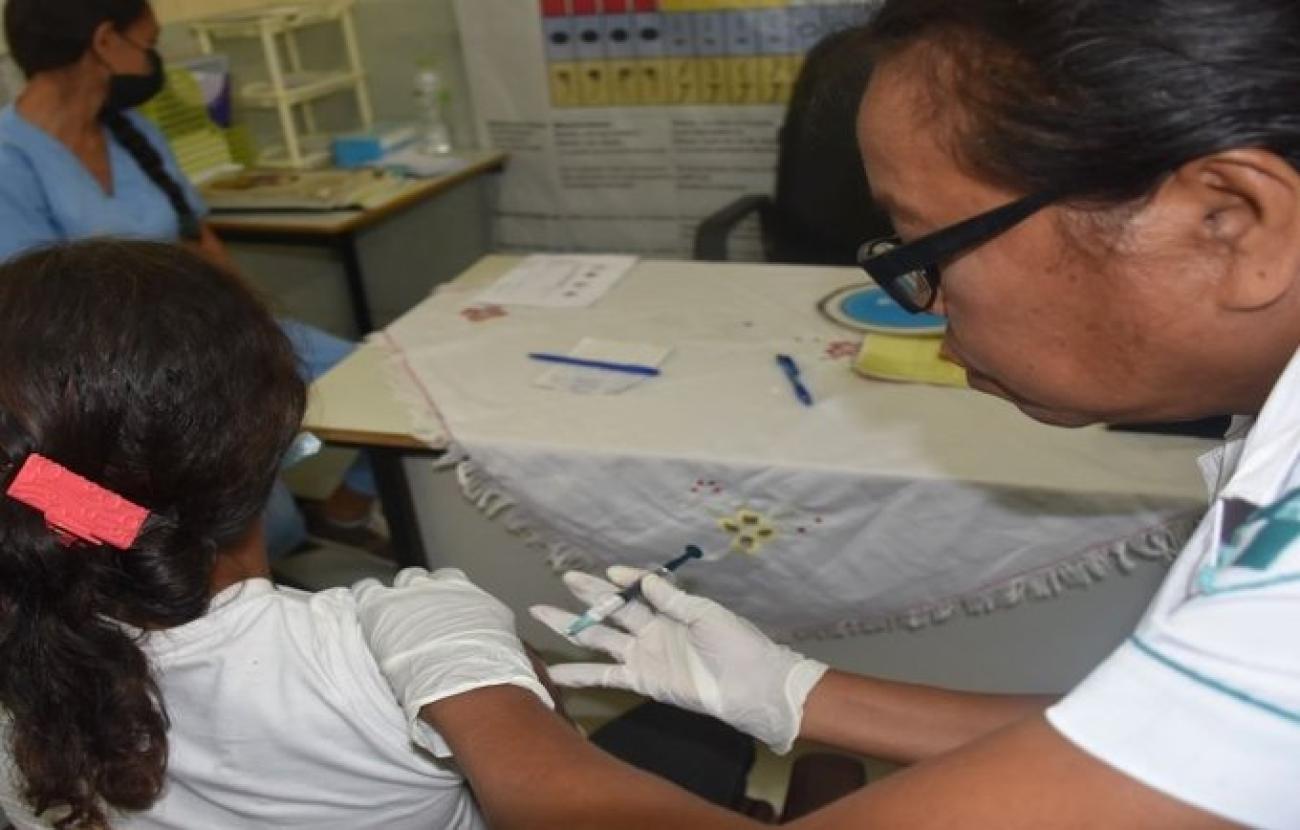World Contraception Day 2022: Access to safe and effective family planning methods key to gender equality and improved livelihoods

Dili, September 25, 2022
While access to family planning and sexual and reproductive health services is critical in ensuring gender equality and improved livelihoods, an estimated 257 million women lack access to safe and effective family planning methods globally.
Similarly, a UNFPA study on Impact of COVID-19 on Family Planning found that nearly 12 million women in 115 countries lost access to family planning services, leading to 1.4 million unintended pregnancies resulting from the disruptions caused by COVID-19.
In Timor-Leste over half of married women of reproductive age (15-49) have expressed a desire to space or limit the number of children they have. Although, nearly one in three women aged 15 to 49 have an unmet need for family planning, with women aged 20 to 24 having the highest unmet need.
For Mrs. Joanzinha Gura da Costa, a 22-year-old mother of two, lack of access to family planning meant postponing her education.
It is recommended that a woman should wait until her last child is at least two years old before becoming pregnant again, to safeguard her health and that of her child.
“I got married when I was a second year student in a private university in Dili where my husband was also studying. I was 20 years old at that time and had to discontinue my studies when I got pregnant. My first born daughter was born in July 2019 and my second born daughter in July 2020 – less than one year apart,” says Mrs. Joazinha Gura.
Girls and women should have the right to plan their families and to realise their dreams in life; for example, pursuing education, engaging in economic activities, to be prosperous, and to contribute to socio-economic development of their families, communities and nations.
“When I saw my classmates go to school I felt very sad and almost lost hope for the future, but after my second daughter was born, my parents and husband advised me to use contraceptives to allow me to continue with my studies and for better spacing.
“I went to Becora Community Health Centre in September 2020 to talk to a health service provider and was counselled on the benefits of using family planning and the available options. I opted for the use of injections method and managed to go back to university to continue with my studies -- I am now in my final year.
“When we are empowered to plan for our families -- as I and my husband did -- we spend more resources on our children’s nutrition, healthcare, and their education,” added Mrs. Joazinha Gura da Costa.
During the 25th anniversary of the International Conference on Population and Development (ICPD) held in Nairobi, Kenya in 2019, Timor-Leste was part of 179 governments that adopted a landmark Programme of Action, representing a resounding endorsement that securing reproductive health, individual rights and women’s empowerment is the obligation of every country and community.
However, as the world marks World Contraception Day, celebrated globally on September 26, many women are denied their rights to access safe and voluntary family planning services. This hinders their ability to build a better future for themselves, their families and their communities.
Mrs. Olimpia Pinto, a mother of a two-year-old daughter, observes that family planning improves the quality of life for both parents and children.
“We decided to use injections as a family planning method, as a family, to allow for close attention to our daughter. She is now two years and seven months old. Me and my husband, who is still in college, have decided to have another child after he finishes his studies and gets a job while I continue supporting the family with my business.” Said Mrs. Olimpia Pinto.
Mrs. Candida Soares, a midwife at Becora Community Health Centre, who provides family planning services testified that the number of clients accessing family planning services has increased in recent years.
“The number of women seeking to use family planning methods in Becora Community Health Centre has increased in the last three years; in 2019 with a total of 1827, in 2020 with a total of 2671, in 2021 with a total of 1332, and from January 2022 until September 2022 with a total of 984.
“Notably, in 2021 and early 2022 the numbers reduced because of the Covid-19 pandemic and the Government implemented state of emergency and social distancing restrictions,” Mrs. Candida Soares, explains.
Through the UNFPA Supplies -- a flagship programme that helps countries build strong health systems and widen access to a reliable supply of modern contraceptives and life-saving medicines for maternal health -- UNFPA has supported commodity procurement in close collaboration with Government of Timor-Leste since 2013.
For more information, contact;
Suleiman Okoth
Communications and Programme Support Specialist
United Nations Population Fund (UNFPA), Timor-Leste
UN House, Caicoli Street
Dili, Timor-Leste
Mobile: +670 75169796
WhatsApp: +254 780534026
Email; okoth@unfpa.org




